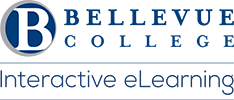
As your classes come to an end, it’s important to consider a few key steps to ensure you’re well-prepared for future academic and professional endeavors. One of the most important things you can do is save your syllabi, notes, and handouts from your classes. These materials can be invaluable for future reference, especially when preparing for cumulative exams or related courses. Additionally, they can be useful when creating a cover letter for a new internship or job. Having a well-organized set of notes can make reviewing key concepts much easier, even after the final exam. These notes can serve as a valuable resource for future studies or professional work.
It’s beneficial to keep assignments and projects from your courses. These materials can help track your progress over time and serve as examples for future work. They can also showcase the hard work and effort you put into your studies. After the course is over, these assignments can be useful for building a portfolio or as references for future projects. Feedback from instructors can provide valuable insights into areas of improvement and strengths. Understanding an instructor’s perspective can help you grow academically and professionally. Even after the course is over, this feedback can guide future learning and development.
Maintaining contact information of classmates and professors can be very beneficial. Networking with peers and instructors can lead to study groups, future collaborations, or professional connections. Building a strong network can support academic and career goals. Even after the course is completed, these connections can provide ongoing support and opportunities. As the course ends, it’s important to take time to relax and recharge. Getting enough sleep is essential to recover from the stress of exams and assignments. A good night’s rest can significantly improve your mood and cognitive function.
Eating healthy foods can keep your energy levels up and support your overall well-being. Try to include a variety of fruits, vegetables, and proteins in your meals to stay nourished. Physical activities can be a great way to relieve stress and boost your mood. Whether it’s a brisk walk, a workout session, or a yoga class, exercise can help you feel more energized and focused. Spending time with friends and family is important for unwinding and enjoying social support. Socializing can provide a much-needed break from academic pressures and help you feel more connected.
Practicing mindfulness, meditation, or other relaxation techniques can calm your mind and reduce anxiety. Taking a few minutes each day to focus on your breathing or engage in a mindfulness exercise can make a big difference in how you feel. Take time to pursue hobbies and interests that make you happy and relaxed. Whether it’s reading, painting, playing an instrument, or any other activity you enjoy, engaging in your passions can be a great way to recharge. Balancing self-care with your studies can help you stay healthy and motivated. Taking care of yourself is just as important as managing your academic responsibilities. By following these tips, you can wrap up your classes successfully and prepare for future challenges with confidence.
Last Updated March 20, 2025
